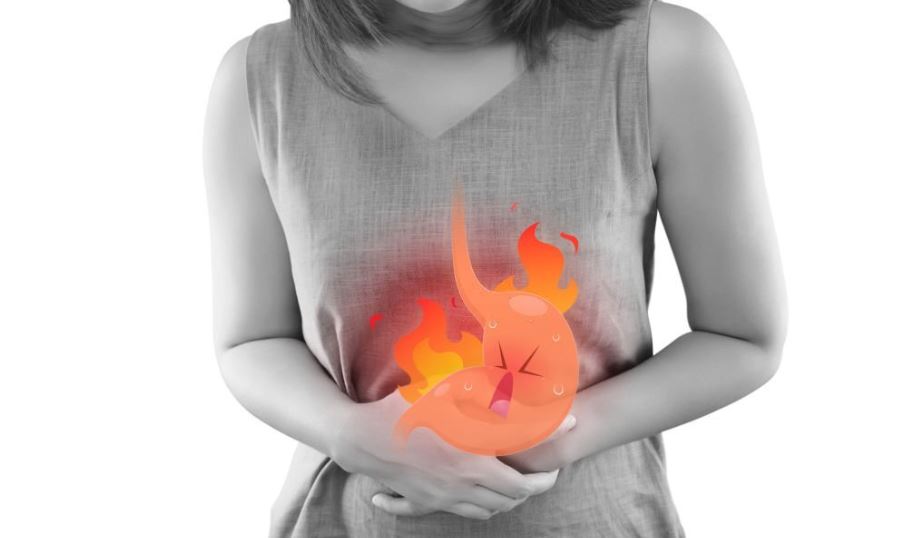If you experience Heartburn symptoms after consuming spicy foods, it’s important to take precautions to manage your discomfort. Learn about effective strategies and lifestyle changes to prevent and alleviate heartburn caused by spicy foods.
Spicy foods can be utterly delicious, but the burning sensation doesn’t stop at your taste buds. If you often get heartburn after eating spicy foods. You can also have mouth sore by this. you know the discomfort that comes from the stomach acid creeping up your esophagus.
But you don’t necessarily have to say goodbye to your favorite fiery foods. With a few precautions, you can still enjoy spicy cuisine without the side of heartburn.
Why Spicy Foods Cause Heartburn?
The reason behind spicy foods causing heartburn symptoms lies in their effect on the lower esophageal sphincter (LES). Consuming spicy foods can relax the LES muscle, which is responsible for preventing stomach acid from flowing back into the esophagus. This relaxation allows stomach acid to escape, leading to the discomfort of heartburn.
When deciding between mild and medium spiciness levels, the question of What’s Hotter Mild or Medium? often arises. The answer to this query varies depending on individual tolerance levels and personal preferences.
Generally, though, medium-spice dishes are hotter than mild ones. The choice between mild and medium primarily hinges on how much heat one can handle and the desired flavor intensity. It’s essential to consider personal preferences and tolerance when making this decision to ensure an enjoyable and comfortable dining experience.
Tips To Prevent Heartburn When Eating Spicy Foods
Luckily, you don’t necessarily have to avoid spicy foods altogether if you experience heartburn symptoms. Try these useful tips:
- Have Spicy Foods in Moderation- Limiting portion sizes of very spicy dishes can help minimize risk. Having just a side of spicy wings instead of a whole platter, for example.
- Avoid Spicy Foods Before Bed
Lying down too soon after eating makes reflux more likely. Finish spicy meals at least 2-3 hours before bedtime.
- Balance Spicy Dishes With Other Foods
Pairing spicy foods with blander items like rice, bread, or vegetables can dilute irritating compounds.
- Stay Hydrated
Drink plenty of non-caffeinated fluids during and after spicy meals to help dilute stomach acid.
- Limit Alcohol, Caffeine, and Carbonation
These trigger increased acid production, so avoid drinking them with spicy foods.
- Watch Portion Sizes of Onions/Garlic
Large amounts of these foods found in spicy dishes can exacerbate heartburn too.
- Use Heartburn-Friendly Cooking Methods
Grilling, steaming, baking, or sautéing spicy dishes may be better tolerated than frying.
- Take Medication Preventatively
Taking antacids or acid reducers can help if you know a spicy meal triggers heartburn.
- Avoid Eating Right Before Exercise
Vigorous activity after eating spicy foods forces acid up from the full stomach.
- Wear Loose Clothing
Avoid tight waistbands that can put pressure on the stomach and make reflux more likely.
What To Do If You Get Heartburn Symptoms From Spicy Foods?
If you do experience heartburn after a spicy meal, here are some quick remedies:
- Take over-the-counter antacids like Tums, Rolaids, or Maalox to neutralize stomach acid.
- Use acid reducers like famotidine (Pepcid) or ranitidine (Zantac) to decrease acid production.
- Drink a glass of low-fat milk to provide a soothing coating for the esophagus.
- Chew sugar-free gum, as saliva production can ease symptoms.
- Sip herbal teas like chamomile, licorice, or ginger tea to reduce irritation.
- Loosen any tight clothing and avoid lying down for 2-3 hours after eating.
When To See A Doctor?
In most cases, heartburn symptoms from spicy foods can be managed with lifestyle changes and over-the-counter remedies. See your doctor if you experience:
- Frequent or severe heartburn episodes
- Symptoms that persist despite prevention efforts
- Heartburn accompanied by pain, nausea, vomiting, or difficulty swallowing
- Unexplained weight loss
Your doctor can evaluate your heartburn symptoms and provide stronger prescription medications if needed. They may also check for underlying conditions that could be contributing to frequent heartburn issues. Check it Top 20 Temu Alternative Apps
Conclusion
Heartburn symptoms are a common side effect of eating spicy foods due to ingredients like capsaicin that can relax the esophageal sphincter and increase stomach acid production.
However, those who enjoy fiery foods can take steps to prevent heartburn through portion control, avoiding lying down after meals, using antacids proactively, and limiting other triggers like alcohol and caffeine.
While the occasional bout of heartburn from a spicy meal may happen despite precautions, frequent or severe symptoms should be evaluated by a doctor for potential underlying conditions.
Being mindful of your personal tolerance levels and taking some simple precautions can allow most people to continue enjoying spicy cuisine in moderation without discomfort.


